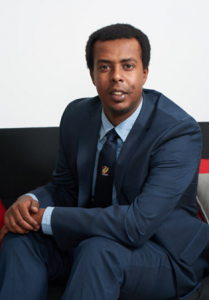Break Free from Our Systems Prison – A Human Centred Way of Thinking About and Managing Co-operatives
 Practitioners know that standard management techniques don’t work very well in co-operatives, especially in flat hierarchy, high participation co-ops. And when that standard tool doesn’t do what we were led to believe it would do, how often do we blame ourselves and even the co-operative model itself?
Practitioners know that standard management techniques don’t work very well in co-operatives, especially in flat hierarchy, high participation co-ops. And when that standard tool doesn’t do what we were led to believe it would do, how often do we blame ourselves and even the co-operative model itself?
But perhaps orthodox management theory, including much that underlies co-operative management, is fundamentally inappropriate for our use.
In this webinar we will discuss the ideology of systems theory which lies at the heart of most orthodox management thinking (an ideology which may be more about control and reinforcing hierarchy than the best option for co-operative governance and business management).
Bob will be introducing a little known, but very exciting, alternative way of thinking about organisations, based on the communication and relationship processes of the humans involved, from the work of Ralph D Stacey and his colleagues at the University of Hertfordshire Business School, UK.
Participants will consider if management thinking based on human communicating and relating processes -Complex Responsive Processes of Relating- could be a more effective way of managing co-operatives.
About the speaker: Bob Cannell has spent his working life helping manage and support worker owned co-operatives in the UK. He was the personnel officer for Suma (www.suma.coop) during the twenty years when the worker co-op grew to be one of the largest businesses in its locality and a wealth generating machine for its workers and their communities. As a co-operative development worker, Bob has advised many UK worker co-ops, co-authoring the Co-ops UK Code of Governance for Worker Co-operatives, and was the UK representative for the International Co-operative Alliance worker co-op sector organisation - CICOPA, and vice-chair of the European region, CECOP. He is an ecology graduate and political economy post-grad, which he credits for his analytical and independent approach to management and organisational thinking.




 If your co-operative is looking to grow, introduce new offerings to its members, or expand into new markets, the innovative financing solutions from Canadian Co-operative Investment Fund (CCIF) could be the resource you need. CCIF is also an incredible resource for Opportunity Development Co-operatives to access additional capital to finance larger projects to make a greater impact in your community! Also, if you are a lender or involved in local economic development, this webinar offers a ton of value. This (free) lunch and learn webinar is hosted by CCIF’s Director of Community Lending, Christina Baker. Learn more and register for this FREE event today!
If your co-operative is looking to grow, introduce new offerings to its members, or expand into new markets, the innovative financing solutions from Canadian Co-operative Investment Fund (CCIF) could be the resource you need. CCIF is also an incredible resource for Opportunity Development Co-operatives to access additional capital to finance larger projects to make a greater impact in your community! Also, if you are a lender or involved in local economic development, this webinar offers a ton of value. This (free) lunch and learn webinar is hosted by CCIF’s Director of Community Lending, Christina Baker. Learn more and register for this FREE event today!